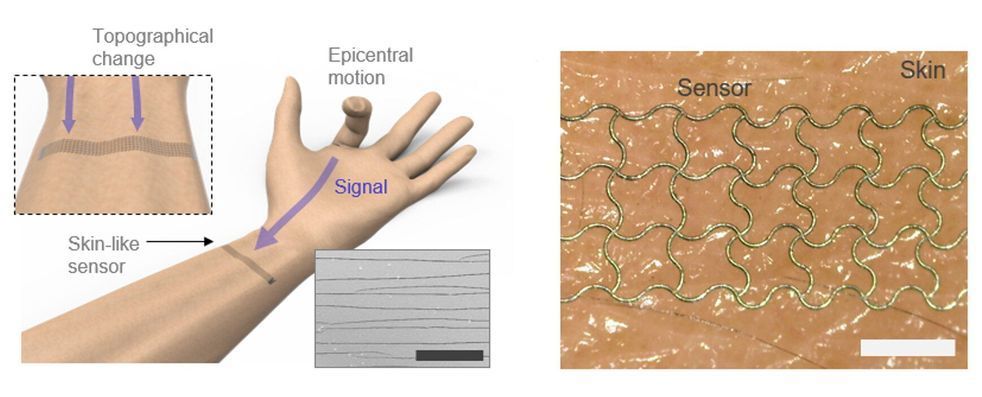Researchers at Seoul National University and Korea Advanced Institute of Science and Technology (KAIST) have recently developed a sensor that can act as an electronic skin and integrated it with a deep neural network. This deep learning-enhanced e-skin system, presented in a paper published in Nature Communications, can capture human dynamic motions, such as rapid finger movements, from a distance.
The new system stems from an interdisciplinary collaboration that involves experts in the fields of mechanical engineering and computer science. The two researchers who led the recent study are Seung Hwan Ko, a professor of mechanical engineering at Soul National University and Sungho Jo, a computing professor at KAIST.
For several years, Prof. Ko had been trying to develop highly sensitive strain sensors by generating cracks in metal nanoparticle films using laser technology. The resulting sensor arrays were then applied to a virtual reality (VR) glove designed to detect the movements of people’s fingers.
